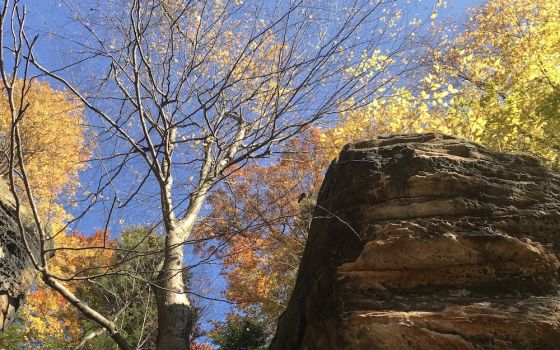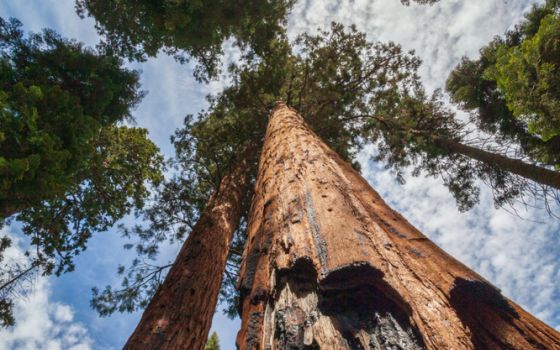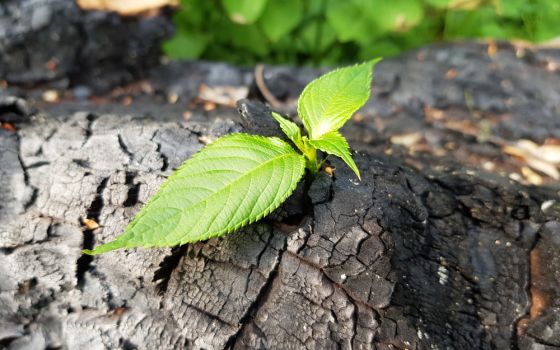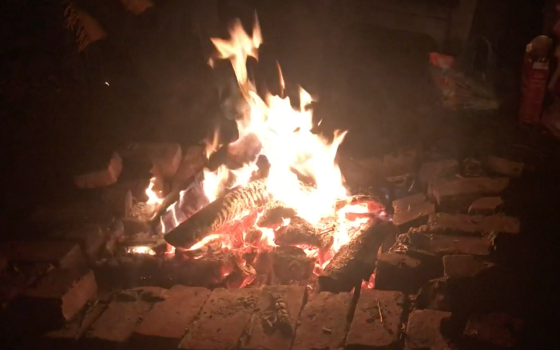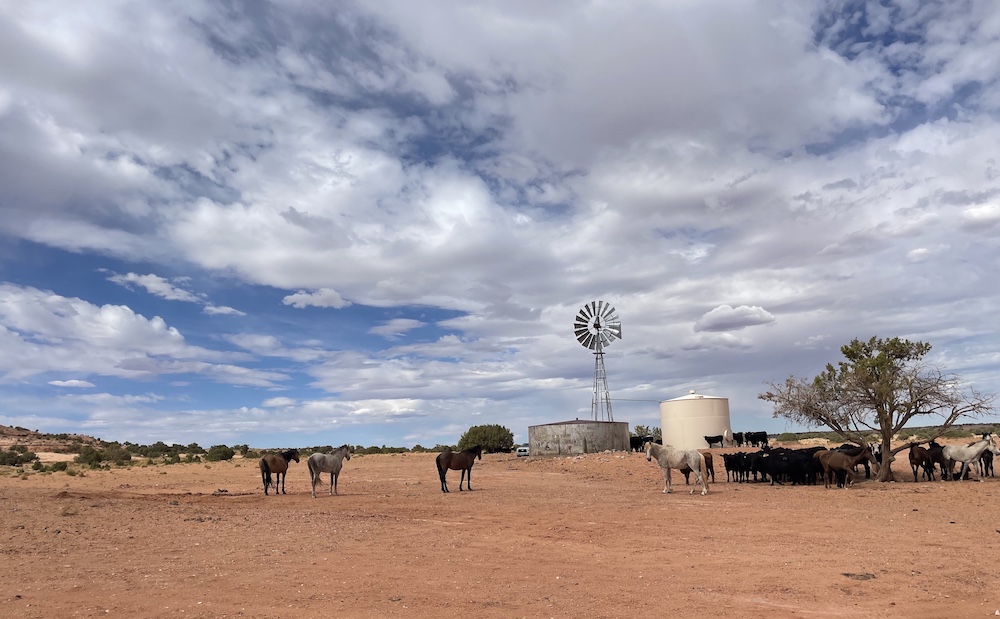
(Teresa Tsosie)
PAUSE
This week's reflections focus on water.
READ
Human-induced climate change is already affecting many weather and climate extremes in every region across the globe. Evidence of observed changes in extremes such as heatwaves, heavy precipitation, droughts, and tropical cyclones, and, in particular, their attribution to human influence, has strengthened since the Fifth Assessment Report (AR5).
—U.N. Intergovernmental Panel on Climate Change 6th Assessment Report, A.3
The coronavirus pandemic that struck the reservation in March 2020 also exacerbated the drought problems, which further ailed Navajo people with no running water or electricity, and who were forced to stay home for months.
The combination, along with other impacts, created what Juan Declet-Barreto, senior social scientist for Climate Vulnerability, Union of Concerned Scientists, called a “syndemic.”
“Since the time of COVID we saw how existing climate impacts like heat, flooding, droughts and storms compounded with the social, economic and epidemiological fallout of COVID to create what’s been called a syndemic, or the combination of multiple simultaneous threats that is COVID and climate threads,” Declet-Barreto said ... during a virtual workshop.
REFLECT
I recently had the opportunity to speak with Teresa Tsosie, a young adult and director of religious education at St. Jude Parish in Tuba City, Arizona, in Navajo Nation, about her experience of the prolonged drought on the reservation, particularly this past summer.
Teresa shared her memories of access to water on the reservation:
“Hauling water has always been a part of growing up. When we would go see my grandmother, who didn’t have running electricity and water, we would go 20 or 30 miles to go get it. Sometimes the water would be contaminated, so we had to stop going to certain places, and we started hauling water from town.”
She remembers, “When we were growing up, the water wasn’t limited. We would just have to worry about if the water got contaminated.”
Today, however, limits do exist on when and how much water people can access. Teresa shared about a day when she needed to get some water from the local utility. “It said on the door what hours you could get water. They have a lock on the water container. Once those hours are over, you cannot get more water.”
Reflecting on this past summer, Teresa told me that because the water levels were so low, ranchers on the reservation were being encouraged to downsize their cattle herds. She had a friend who was forced to do this and remembers reading an article about a family in Navajo Nation: “Every year they had to downsize, so now they have no cattle anymore.”
This lack of water also affected farmers. It was difficult to grow crops during the drought, but then, toward the end of July, much-needed torrential rains poured down on the land. Because the soil was so dry, however, intense flooding occurred.
Teresa shared that a few of her friends lost all of their crops as a result of the flooding. “It was a lot at once, and that was the problem. It was constant. Rain, rain, rain, rain, rain. You couldn't complain about it, though, because we needed it a lot.”
Teresa has hope that next year’s crops will be more robust. “We had a really bad drought, we needed this rain. As a people, you have to think about it. It is similar to your faith, when you are getting tested. You have to think, 'It is going to make me stronger in my faith.' We have been through a lot these last couple of years. You can endure so much, but it will pass.”
When I asked Teresa if she had a particular message that she wanted to share with EarthBeat readers, she said, “I think people take having clean, running water and electricity for granted. We saw what a struggle it is not having access to clean water or not being able to use a running faucet when the pandemic hit. We were hit so hard by the pandemic because many people here don’t have running water. You have to clean things: your hands, your clothing. You take that for granted when you do [have access to running water]. I think COVID wouldn’t have been as bad if there was access to that.”
She hopes people will “realize that having running water is a kind of a luxury. I have running water because my parents have worked hard, but I think about the people who don’t have running water.”
Teresa encourages readers “to think about homeless populations in cities. They don’t have access to water, and the pandemic hit them hard too. Easy access to clean water — some people take that for granted. I know I do sometimes. Having running water is a luxury that not a lot of people have.”
“I think, too, our faith is a gift that a lot of people aren’t fortunate to have. I think sometimes you take your faith for granted. Anytime I work with the [U.S. Conference of Catholic Bishops], I am reminded how lucky I am to have my faith. For people who are reading these articles, I hope they realize that they are lucky to have access to these gifts, like water, but they are also lucky to have their faith, especially the younger generation.”
Teresa shared a few final thoughts: “For me, you never really understand the importance of water until you don’t have it. With the pipeline (the Enbridge Line 3 tar sands oil pipeline), if something happens, the water is completely contaminated. ... As for us, water is part of our life. It helps us. It nourishes us.”
- Do you recognize clean, running water as a luxury and gift in your own life?
ACT
- Locate your watershed. People in the United States can use this tool to locate your watershed, or you can do a search for “[your location], watershed” to learn more about how water moves in your area.
- If you are able, visit a part of your local watershed sometime this week and prayerfully reflect on how God expresses love for you through this place or these places.
pause | read | reflect | act
You can sign up here to receive these reflections every Monday, Wednesday and Friday throughout the Season of Creation, Sept. 1-Oct. 4.
Advertisement






